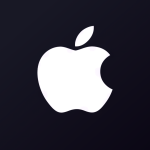Welcome to our dedicated page for Apple news (Ticker: AAPL), a resource for investors and traders seeking the latest updates and insights on Apple stock.
Apple Inc. (AAPL) maintains its industry leadership through continuous innovation in consumer technology and services. This news hub provides investors and stakeholders with direct access to official announcements and curated analysis of the company’s strategic developments.
Track quarterly earnings reports, product launch details, and partnership announcements alongside executive leadership updates and regulatory filings. Our repository consolidates essential information to help you monitor Apple’s ecosystem growth, market expansions, and technological advancements.
Discover how Apple’s integration of hardware, software, and services evolves through verified updates about iPhone innovations, Mac ecosystem enhancements, and services segment growth. Stay informed about supply chain developments and sustainability initiatives directly from primary sources.
Bookmark this page for streamlined access to Apple’s latest corporate communications. Check back regularly for real-time updates that matter to tech industry observers and financial market participants.
Apple has unveiled a new iMac featuring a sleek design, powered by the M1 chip, which is only 11.5 millimeters thick. The 24-inch iMac offers a 4.5K Retina display with 11.3 million pixels and is available in multiple colors. It features the best camera, microphones, and speakers ever in a Mac, plus Touch ID for secure logins. The M1 chip enhances performance significantly, boasting up to 85% faster CPU and 2x faster GPU capabilities compared to previous models. The iMac is available for order from April 30, with prices starting at $1,299.
Apple announced the next generation of Apple TV 4K, featuring the A12 Bionic chip for enhanced graphics, video decoding, and audio processing. The device now supports high frame rate HDR with Dolby Vision, promising smoother playback. The redesigned Siri Remote includes intuitive navigation and power controls. With various entertainment options including Apple TV+ and Apple Music, customers can enjoy an elevated home theater experience. The Apple TV 4K starts at $179 and will be available for order from April 30, 2021.
Apple unveiled a new purple finish for the iPhone 12 and iPhone 12 mini, highlighting their advanced dual-camera system and A14 Bionic chip. The phones offer a Super Retina XDR display and improved durability with Ceramic Shield. Pre-orders start on April 23, with availability on April 30. The pricing for iPhone 12 begins at $799 and $699 for the mini before trade-ins. The release adds excitement to the already popular iPhone 12 lineup, which boasts an over 99% customer satisfaction rate, along with 5G support and a new MagSafe accessory ecosystem.
Apple has launched Apple Podcasts Subscriptions, a global marketplace allowing listeners in over 170 countries to access premium subscriptions from various creators starting in May. This new feature offers benefits like ad-free listening and exclusive content from well-known brands like NPR and The Athletic. The updated Apple Podcasts app, available with iOS 14.5, includes enhanced search functions and new features for creators. Users can enroll in the Apple Podcasters Program for $19.99 annually to manage their shows and subscriptions.
Apple has introduced Apple Card Family, set to launch in May, allowing users to share an Apple Card among their Family Sharing group. This new feature lets two individuals co-own an Apple Card, share credit lines, and manage spending collectively. Parents can also share the card with children, emphasizing responsible financial habits. With all spending tracked on iPhone, this aims to enhance users' financial wellness while eliminating fees and offering daily cash rewards on purchases.
Apple has announced an expansion of Apple Arcade, introducing two new game categories: Timeless Classics and App Store Greats, alongside over 30 new titles. This expansion brings the total number of games available to more than 180, including exclusive titles like NBA 2K21 Arcade Edition and Star Trek: Legends. The subscription service remains priced at $4.99 per month with a free trial and includes no ads or in-app purchases, enhancing user privacy and providing a family-friendly platform.
Apple announced that over 110 manufacturing partners are moving to 100% renewable energy, with nearly 8 gigawatts of clean energy planned. This initiative will avoid over 15 million metric tons of CO2e emissions annually, equivalent to removing 3.4 million cars from the road. Apple aims for carbon neutrality across its entire business by 2030 and has invested $4.7 billion in Green Bonds for environmental projects globally. Additionally, a major energy storage project in California will support renewable energy infrastructure, enhancing sustainability efforts.
Apple has announced its annual Worldwide Developers Conference (WWDC21) will be held online from June 7 to June 11, offering developers insights into iOS, iPadOS, macOS, watchOS, and tvOS. The event will include keynotes, online sessions, and 1:1 labs for developers to interact with Apple engineers. The Swift Student Challenge is also open for submissions until April 18, inviting young developers to showcase their coding skills. Additionally, Apple is committing $1 million to SJ Aspires, an initiative supporting education in underserved neighborhoods as part of its Racial Equity and Justice Initiative.


